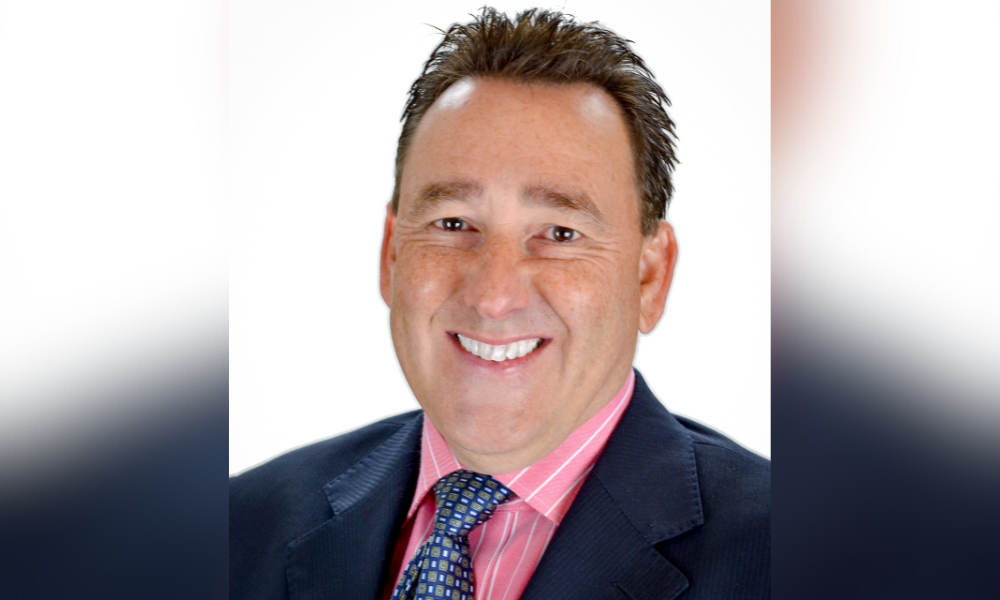The real estate board congratulated the incoming mayor and vows to press forward with housing advocacy efforts

Toronto’s real estate board has congratulated new mayor-elect Olivia Chow on her election success and emphasized the need to tackle the steep housing affordability challenges facing the city.
In a statement to Canadian Mortgage Professional, Toronto Regional Real Estate Board (TRREB) president Paul Baron (pictured) said the organization looked forward to continuing working with the mayoral office as well as council and city staff on the housing file at a “critical time” for the city and its future.
Chow edged out closest challenger Anna Bailão to clinch the mayoralty in Monday’s election, taking the reins at a time when sky-high property prices, rising interest rates and a chronic inventory shortage are bludgeoning housing affordability in Toronto.
Baron said addressing the issues of housing supply and affordability should be top of mind, with those matters having emerged as hot-button topics for Torontonians throughout the election campaign.
That’s especially crucial, he said, with many city residents taking a dim view of city council’s efforts to improve the escalating housing crisis.
“We must remain focused on addressing the housing challenges across the entire housing spectrum,” he said. “According to a TRREB-commissioned Ipsos public opinion poll, a third of Torontonians gave city council failing grades on addressing housing affordability, and unless this feedback improves, Toronto may not graduate to top-tier global city status.”
TRREB met with Chow during the election campaign, Baron noted, and discussed the board’s suggestions for boosting housing supply, affordability and taxation. The organization is also setting out its stall for its advocacy efforts in the coming months and years, including efforts to safeguard homeowners against further property taxes and improve the lot of new buyers.
The annual pace of Canadian housing starts slowed in May by 23% over the previous month, with Toronto, Vancouver, and Montreal all posting big month-over-month declines.https://t.co/DSbVvoa9xl#breakingnews #mortgageindustry #marketdecline #housingmarket
— Canadian Mortgage Professional Magazine (@CMPmagazine) June 15, 2023
“We will continue to focus on the need for the city to implement its 2023 Housing Action Plan [building 285,000 new homes by 2031], expand housing options in neighbourhoods by ending exclusionary zoning and building more multiplex housing, and standing firm against the introduction of new housing taxes or fee increases without providing adequate relief for first-time homebuyers trying to enter the market,” Baron said.
How does the new mayor plan to tackle the housing affordability challenge?
Chow, who plans to take office on July 12, said approval of proposed affordable housing plans would be among her first priorities as mayor. During the campaign, she said she would build 25,000 rent-controlled homes – at least 7,500 of which would be affordable units – on city-owned land, while she’s also pledged to up Toronto’s Vacant Home Tax to 3%.
The incoming mayor also said while campaigning that she would increase rent supplements through a luxury homes tax, which would expand land transfer tax on homes with a sale price of $3 million or over, although her stance on property taxes drew fire from opposing candidates.
Chow declined throughout the campaign to reveal how much of a property tax increase would be required to fund her housing proposals – and in an interview with CBC this week, she once again opted against disclosing a figure.
“I’ve said it’s a modest tax increase, but I can’t give a number,” she said. “Unfortunately there’s a big budget deficit and my priority is to look at all affordable housing plans that are ready to go.”
How severe is Toronto’s housing crisis?
A recent National Bank report shone a light on grim prospects for would-be homebuyers in Toronto’s housing market, indicating that it would take around 25 years for a median-income earner to save for a down payment on a house in the city.
That’s despite affordability improving in Toronto at the beginning of 2023 for the second consecutive quarter after 27 straight months of deterioration, National Bank said.
For a non-condo home, a stunning 304 months of saving would be required for the down payment, the study revealed, with an annual household income of $236,221 required to afford the representative home – priced at an eye-watering $1.16 million.
To purchase a condo, meanwhile, a homebuyer would need to save for nearly five years on an annual household income of $165,220, assuming a savings rate of 10%.
Make sure to get all the latest news to your inbox on Canada’s mortgage and housing markets by signing up for our free daily newsletter here.



